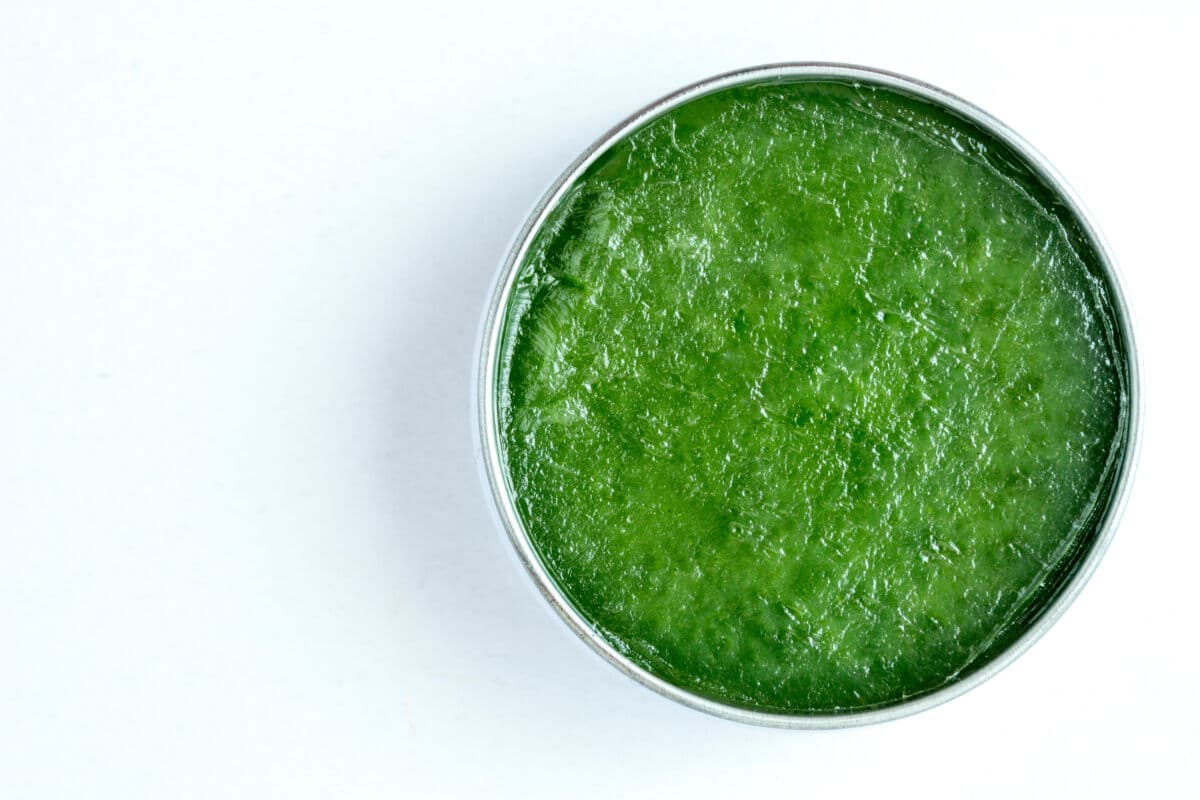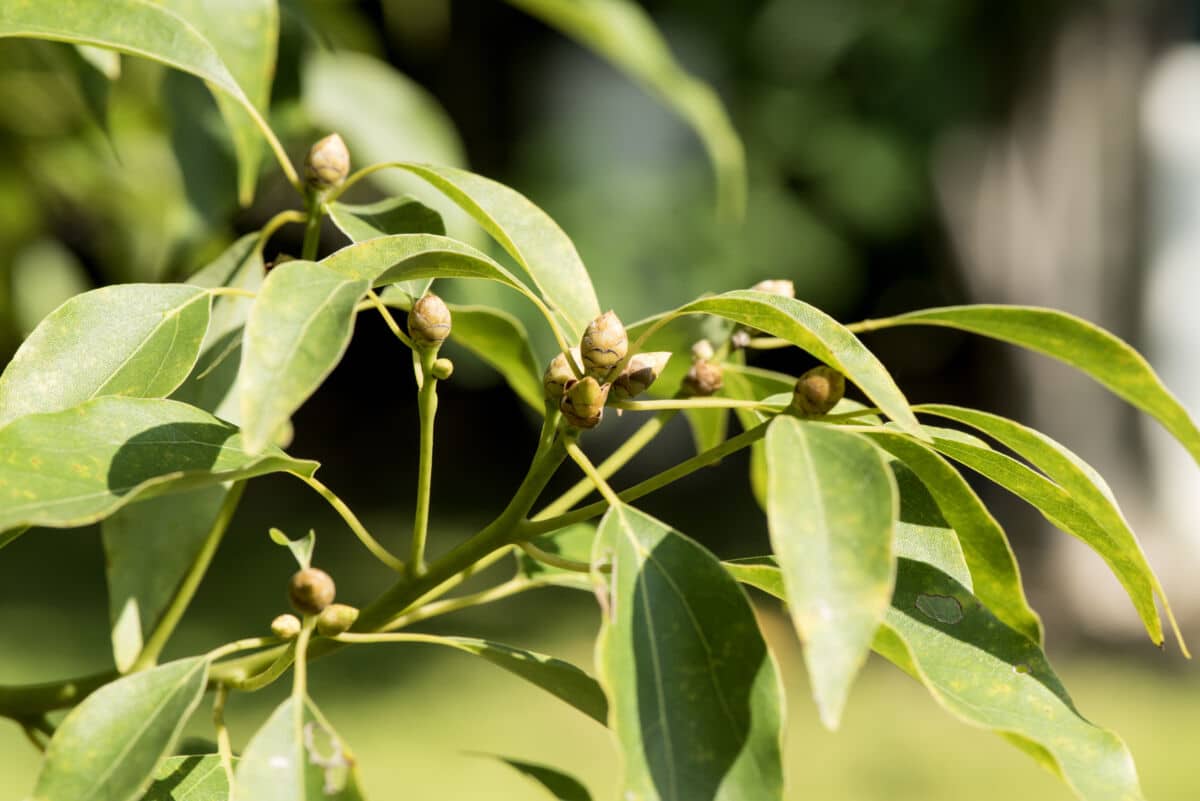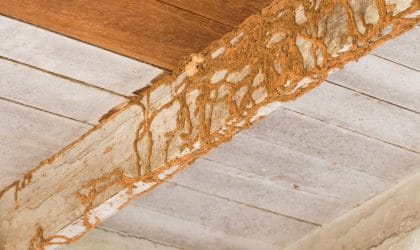Does Camphor Repel Mosquitoes? If so, How to Use it?
Camphor is a waxy substance often recommended as a mosquito repellant, but just how effective is it and do we recommend it's use?

If you’ve not heard of camphor, it’s something that many homeowners claim is a cheaper alternative to commercial mosquito repellents and that its natural origins also make it less dangerous to use.
But do all these claims hold water?
Does camphor repel mosquitoes?
In this article we look at camphor, what it is, how effective it is when used as a mosquito repellant, and ultimately whether we recommend you use it or not.

What’s Camphor?
Camphor is a waxy substance that’s typically used for coughs, colds and minor irritants like insect bites and sores. It’s usually rubbed on the skin or inhaled, giving patients a cooling sensation and strong minty aroma that lessen some minor health issues.
Camphor originally comes from Cinnamomum camphora or the Kapur tree, two large trees that are found all over Asia. However, a lot of producers are able to artificially make it from turpentine. While there’s no research that tells how dangerous the synthetic camphor is, we suggest buying the natural one just in case.
This white and oily product is all over supermarkets and pharmacies. They also come in bundles from specialized stores that sell candles or essential oils.
How Does it Work?
When applied on the skin, WebMD points out that camphor is able to stimulate nerve endings that help relieve uncomfortable symptoms like itchiness and pain. It also increases blood flow to calm swelling.
Additionally, camphor is known to kill fungi that invade the body, specially the feet.
Does Camphor Repel Mosquitoes?
Mosquitoes hunt for blood using many senses, one of these is their heightened sense of “smell”. With this, they can smell the carbon dioxide and chemicals that our bodies produce regularly. Camphor counters this like how citronella and eucalyptus affects bugs. It overwhelms mosquitoes with its own odor and confuses them, stopping any bite from ever happening.
According to Bug Off, just leaving camphor tablets on the four corners of the room can alleviate mosquito attacks because the waxy substance evaporates on its own, filling the room with its aroma.
How do You Use Camphor to Repel Mosquitoes?
Naturally sourced camphor is a better alternative to chemical repellents. It’s not that expensive, and you can use it with kids around. With that said, there are plenty of ways to use this waxy material against mosquitoes. Aside from the one we’ve already mentioned, here are 3 more mosquito-repelling methods that you might want to try at home.
Method No. 1:
- Drop 2 tablets of camphor into a bowl of water.
- Put the bowl in any corner of your room.
- Remember to position it in a place where kids and pets can’t get to it.
Method No. 2:
- For quick results, place a few tablets of camphor on a device that’s always heated.
- Leave the tablet to melt. The smell will fill the room in just a few minutes.
Method No. 3:
- Light a camphor ball in the middle of a room.
- Leave the room for 1 hour with all its doors and windows closed.
- After that, open the windows to get some of the smell out.
- The room will then be free from mosquitoes.
Is Camphor Safe?

With all this liberal use of camphor, you might have wondered if it’s safe.
Well, to be completely honest, no single product is 100% safe. All pesticides and repellents have some kind of danger to them that homeowners should always know about. And as for camphor, there are four.
- It’s flammable. Camphor catches fire easily. So when you’re putting it on top of heated devices, make sure to use only 1 to 2 tablets.
- It explodes when microwaved. Some homeowners have a habit of microwaving tablets to melt them faster. This is not a good idea as the substance may explode. If you want it to dissolve faster, it’s a lot better to drop it in a bowl of hot water.
- It’s toxic when eaten. WebMD specifically warns us not to eat this wax. Ingesting it can cause burning in the mouth and throat, nausea, vomiting and even death.
- It’s unsafe around wounds. Camphor is easily absorbed by our skin. So it can easily enter the body if it’s applied on top of broken or injured skin.
So does camphor repel mosquitoes? Of course, yes. It’s one of the best plant based alternatives to chemical commercial repellents. But do remember the safety tips above, and you’ll be just fine using this cheap but effective product.
Share this post
Save time and money on pest control
Subscribe to expert DIY pest control tips, pest control product reviews and information.




